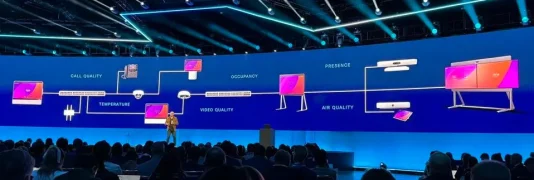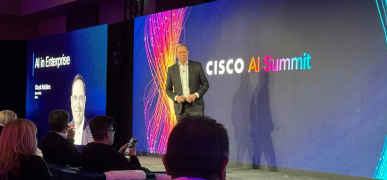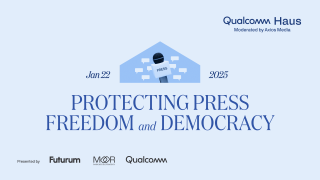After release to developers at Apple’s WWDC, the Apple iCloud is available to all consumers today with access to iOS 5 and updated iTunes. In many ways, it is incredible that millions will have access to the consumer power of the cloud. It’s very integrated into the experience, but then again, it’s not as complete or comprehensive when compared to the best-in-breed cloud apps and services available today. Will that make a difference in consumer acceptance? Let’s see.
What Makes a Great Cloud Experience?
A few applications define by example what a great cloud app or service can provide. To a consumer, this will change over time and will also be dependent of their comfort and knowledge. Some sites that are ahead of the cloud service game are Evernote, Amazon Kindle, and Netflix. What makes these great examples of consumer cloud offer? While very different in terms of usage, they share similar variables that in aggregate make them awesome:
- Cross Platform: Windows, OSX, iOS, Android and the web. Kindle and Netlix are even available on special-purpose devices like the Kindle and Roku. Consumers can buy into the service and not worry about the platform going away.
- Continuous Computing: Continuous computing means a few different things. On content consumption, the next device picks up exactly where the last device left off. On Netflix, if I am halfway through a movie on my iPad I can pickup at the same spot on my Roku. When I pick up another Kindle device, it asks me whether I want to go to the latest bookmark.
- Sync: While a step back from continuous computing, it does assure that the same files are on the same system. On Evernote, every change I make is in synch when I open up the next device.
- Continuous Improvement: Monthly and even weekly updates to add features and functionality.
- Compatible and Data Integrity: Even with all these updates, the data keeps its integrity. If the service has a question about which version is the master, it asks me. Evernote will tell me that I have a duplicate entry and lets me pick the version or content I want.
iCloud: Cross Platform
As we all know, Apple by design works in its own “walled garden” but that doesn’t mean its completely closed off. You cannot get iCloud-enabled apps like Pages, Numbers, Keynote or iBooks for Windows or Android. Even worse, you cannot get to your photos and PhotoStream on any mobile device other than iOS. To be fair, users can get access to Photo Stream on a Windows PC , but users should at least be allowed access to their own photos over the web if they want. Users can access iWork compatible documents on all “modern” browsers by going to
iCloud.com and downloading files. Windows users then need to drag and drop the updated file inside the web-based
iCloud.com to update the file.
- Grade D
iCloud: Sync
iCloud will automatically “sync” photos (Photo Stream), purchased music and TV shows (iTunes), apps, letters (Pages), spreadsheets (Numbers), and presentations (Keynote), Reading Lists and Bookmarks (Safari), reminders (Reminders), calendar (Calendar), email (Mail), notes (Notes), and contacts (Contacts).
There are some major exceptions. iWork documents will not auto sync with the Windows “Documents” folder, as I think users would expect. Sugarsync and Drobbox will automatically sync documents with Windows and any other file type with Windows. Also, personal videos and commercial movies do not sync on any iCloud platform which I don’t fully understand. Maybe its a concern with storage on iOS devices or storage and throughput in the iCloud.
- Grade B
iCloud: Continuous Computing
Within iOS phones and tablets, users can start right where they left off for TV shows (Videos) , games (Games Center) and book bookmarks (iBooks). These are real awesome capabilities especially for those where it’s hard to know where you left off.
iCloud will not save the “state” for playing music (Music), playing movies (Videos), or web pages (Safari). Add the PC and Mac into the continuous computing arena and iCloud experience starts to degrade for most all use cases for a variety of reasons. iOS games don’t run or sync on a Mac or PC and on Windows platforms iWork isn’t available. Consumers over time will expect continuous computing on every usage model on every platform, the way Evernote does it today.
- Grade C
iCloud: Continuous Improvement
I cannot definitively answer this question as it will emerge over time, but I must extrapolate from what I have seen from previous drops of Apple software. Apple software app drops, with iOS in particular, have been consistent, very often, and very solid code.
- Grade A
iCloud: Compatible and Data Integrity
So far so good, even on difficult to manage applications like word processing, spreadsheets, and presentations. I make a one line change to a document without going back to “Documents” inside iOS and web Pages, the one line changed on every other system.
- Grade A
What, not Straight A’s and Does it Matter?
Apple has never needed to achieve a 4.0 in everything to be successful. Getting all A’s in the core segment of users and building useful solutions that just work has been the Apple hallmark. The first iPhone proved this and the iPhone 4s will prove this again as everyone else offers 4G but Apple doesn’t have to. A good fallback to Continuous Computing in good Sync, and I believe that as long as Apple still allows other services with better cloud capabilities into their walled garden, it won’t be an issue now. Over time, I believe Apple will fill in the gaps in iCloud and that have fully thought through where they could add the most value and that’s what they hit first. Your move, Google, Amazon and Microsoft.
Patrick founded the firm based on his real-world world technology experiences with the understanding of what he wasn’t getting from analysts and consultants. Ten years later, Patrick is ranked #1 among technology industry analysts in terms of “power” (ARInsights) in “press citations” (Apollo Research). Moorhead is a contributor at Forbes and frequently appears on CNBC. He is a broad-based analyst covering a wide variety of topics including the cloud, enterprise SaaS, collaboration, client computing, and semiconductors. He has 30 years of experience including 15 years of executive experience at high tech companies (NCR, AT&T, Compaq, now HP, and AMD) leading strategy, product management, product marketing, and corporate marketing, including three industry board appointments.






















































































